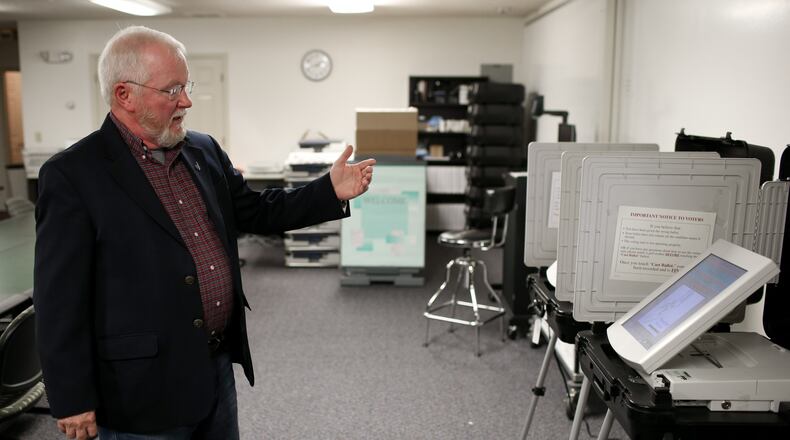A group of 20 computer scientists and security experts called on Georgia to overhaul its elections system and begin using voter-verified paper ballots, saying it would assure accuracy and public confidence following an alleged breach of confidential data that could affect millions of Georgia voter records.
In a letter sent Tuesday to Georgia Secretary of State Brian Kemp, the group acknowledged that the breach is now under federal investigation and that much is still unknown. But, they said, potential findings “could have dire security consequences for the integrity of the technology and all elections carried out in Georgia” depending in their severity.
“While we understand that this investigation is ongoing and that it will take time for the full picture to emerge, we request that you be as forthcoming and transparent as possible regarding critical information about the breach and the investigation, as such leadership not only will be respected in Georgia but also emulated in other states where such a breach could occur,” the group said.
A spokeswoman for Kemp referred questions to federal officials, and said the office was also waiting for resolution. Federal officials have had no new updates as the investigation continues.
The Federal Bureau of Investigation launched the inquiry into the suspected cyberattack two weeks ago at the request of state officials, after staff discovered records kept by the Center for Election Systems at Kennesaw State University may have been compromised.
The election systems center at the university has since 2002 overseen the state's election operations and voting machines. It does that work through an agreement with the Secretary of State's Office. It does not, however, maintain live databases or the state's official voter registration database.
The letter came as Kemp, the state’s top elections official, will hold a nationally watched special election April 18 to replace former U.S. Rep. Tom Price. Preparations for that election are operating as normal, including an expectation that the state will be able to use its usual supply of “direct-recording electronic” voting machines, or DREs, known by voters for their touch screens.
The state committed to the machines in 2002, when it last overhauled its elections. At the same time, it also eliminated a paper trail of recorded votes.
About the Author
Keep Reading
The Latest
Featured

